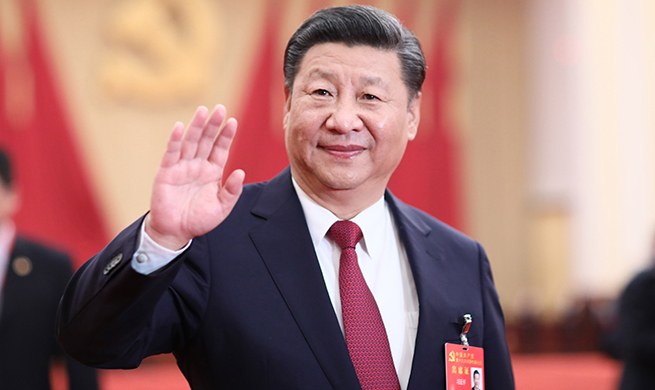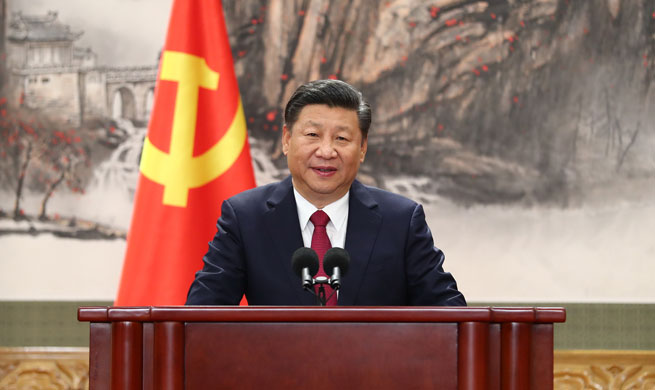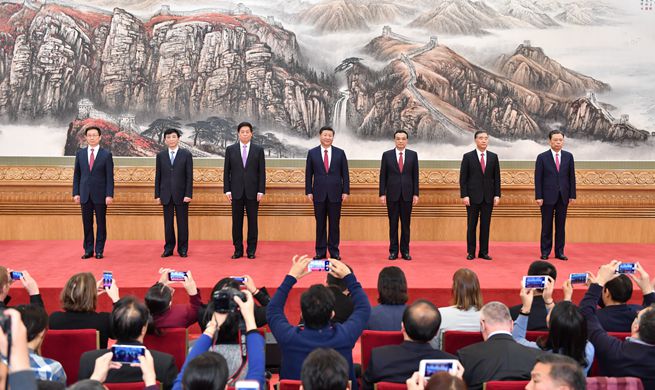LONDON, Oct. 28 (Xinhua) -- British Prime Minister Theresa May intervened Saturday in Britain's workplace equality debate after new figures revealed the gender pay gap has widened this year.
Although the difference between pay packets for men and women in full-time jobs has dropped to a record low of 9.1 percent, Britain's overall gender pay gap has risen marginally to 18.4 percent.
Downing Street said estimates show closing gender pay gaps in work would add almost 200 billion U.S. dollars to the British economy by 2025.
May's intervention follows the publication of gender pay figures released by the Office for National Statistics (ONS).
She announced a new drive to improve workplace equality by calling on more companies to report their gender pay gap and take action to close it as a way of narrowing the gap.
The prime minister wants companies to ensure progress is made on female representation at senior levels, including supporting women to progress to middle management posts. May also wants smaller businesses, not just those with 250-plus employees, to publish their gender pay gap data.
The Women's Business Council which May established as Home Secretary in 2012, has today been asked to advise her on progress and good practice in business.
The council will also be providing recommendations in key areas including middle management, flexible working, working parents and return-to-work schemes.
May said: "Already many of the UK's top companies are leading the way in making sure everyone's contributions to the workplace are valued equally, and it is encouraging news that the gap has fallen this year for full-time workers. But the gender pay gap isn't going to close on its own. We all need to be taking sustained action to make sure we address this."
A spokeswoman for May said: "The gender pay gap in the UK has come down from 21.9 percent in 2007, with 27.5 percent of FTSE100 board members now women, up from 12.5 percent in 2011.
"The UK is already a world leader in this field and today's announcement builds on the work to get 33 percent of women on boards by 2020 and eliminate all-male boards in the FTSE 350."

















